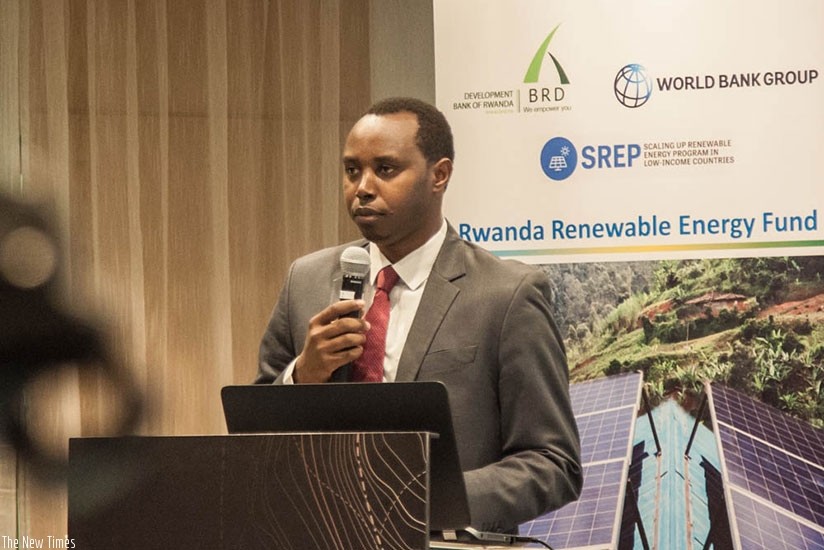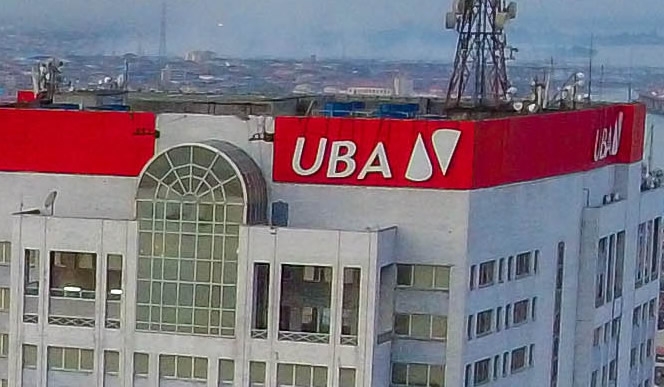Rwanda’s energy rollout efforts received a boost Tuesday, following the operationalisation of $50 million to catalyse private sector’s investment in off-grid energy solutions.
The fund, managed by the World Bank and rolled out through Development Bank of Rwanda, is expected to facilitate the electrification of about 445,000 households in the next seven years.
This, when achieved, will increase electricity access in the country by about 19 percent. The current energy access rate stands at about 40 percent.
A section of the funds will also be used to avail credit facilities to mini-grids and developers in the sector.
The intervention comes barely a month after local players in the renewable energy sector under their umbrella body, Energy Private Developers, had come out seeking finance to help meet national targets.
The fund will allow a section of SACCOs, commercial and micro-finance institutions provide affordable loans to their clients to purchase certified solar systems.
Livingstone Byamungu, the chief investment officer at BRD, said the main objective of the fund is to increase affordability and reduce access to financial challenges.
“The main objective is to increase affordability and reduce access to finance challenges in partnership with SACCOS, commercial and micro-finance banks and mini-grid developers,” he said.
The financial institutions will be able to access direct credit as well as credit lines that they will, in turn, avail to households, micro-enterprises and small and medium enterprises.
“The target beneficiaries are households and businesses with an objective to replace the use of Kerosine, diesel and dry cell batteries,” he said.
The fund will support Tier 1 off-grid solutions that provide a basic service level such as lighting, radio and cell phone charging.
“Mini-grid developers can also get resources directly from BRD,” Byamungu noted.
Robert Nyamvumba, the energy division manager at the Ministry of Infrastructure, said the fund will go a long way in increasing the role of off-grid solution in national electricity roll-out.
In the current national strategy, off-grid solutions are meant to account for about 48 per cent of national energy provision while on-grid solutions account for the rest 52 per cent.
Off-grid solutions will particularly target rural areas that have the least access to energy.
“Off-grid solutions will be through mini-grids, solar energy solutions, and small power plants. The idea behind on-grid solutions is to focus on productive users and users living within 37 metres of low voltage lines to lower the distribution losses,” Nyamvumba explained.
He noted that access to energy and electricity remains a priority for the government in a bid to continuously improve Rwanda’s investment climate.
In the recent World Bank Doing Business report, the getting electricity indicator ranked lowest at 119 position globally largely due to challenges of reliable power for productive uses.
World Bank country manager Yasser El Gammal said the intervention is meant to boost rural electrification efforts to expand off-grid connections to benefit about 1.8 million citizens.
“It is expected to stimulate demand by providing financing to households and small businesses through financial institutions near them that they already have relationships with. There is also a window to support private sector and providers of mini-grids to further boost capacity, thus impacting both the supply and demand side,” Gammal said.
The intervention particularly targets rural areas which have very low energy access rates.
Some districts such as Nyaruguru, Nyamagabe, Gakenke, Gisagara and Gicumbi have less that 10 per cent energy access and are expected to benefit most from the latest initiative.
In a recent interview with this paper, Ivan Twagirashema, the chairperson of Energy Private Developers, said there are over 100 private sector players in the local renewable energy sector with limited impact largely due to financing challenges.
In the solar energy sub-sector, there are three major operators, Mobisol, BBoxx and Ignite power, which have so far contributed about 11 per cent of national penetration.
The government has a strategy to extend electricity to the entire country by 2024.
The new plan 7-5-2 aims at connecting all the households in next seven years, by 2024, connecting all the productive users by 2022, and ensuring that the entire capital is connected in the next two years by, 2019.
Courtesy The newtimes










